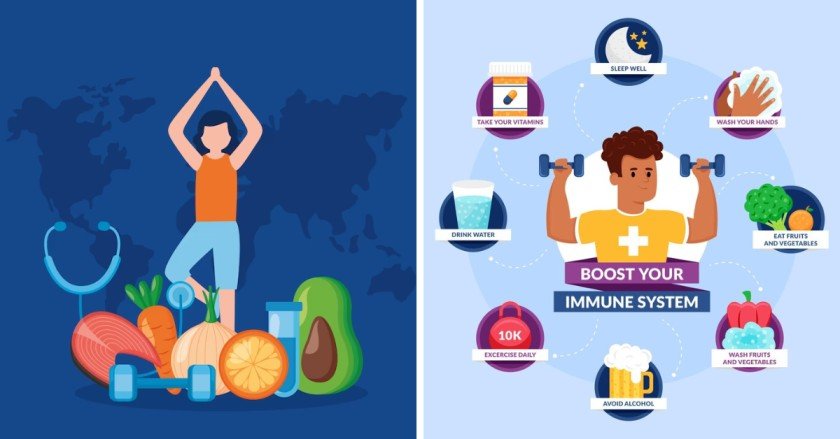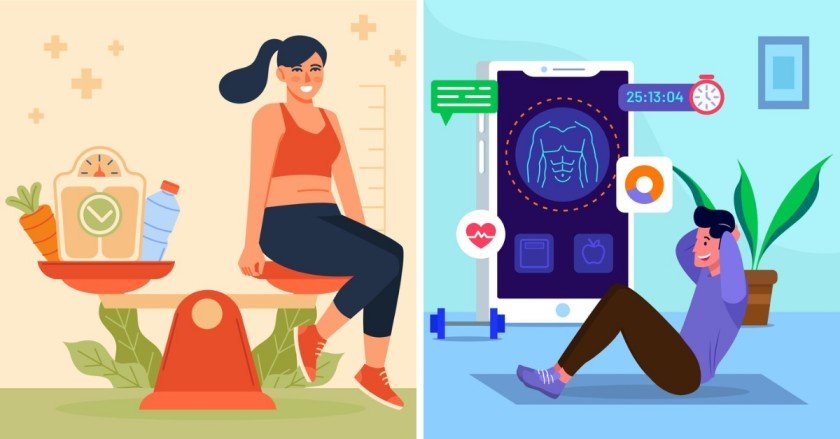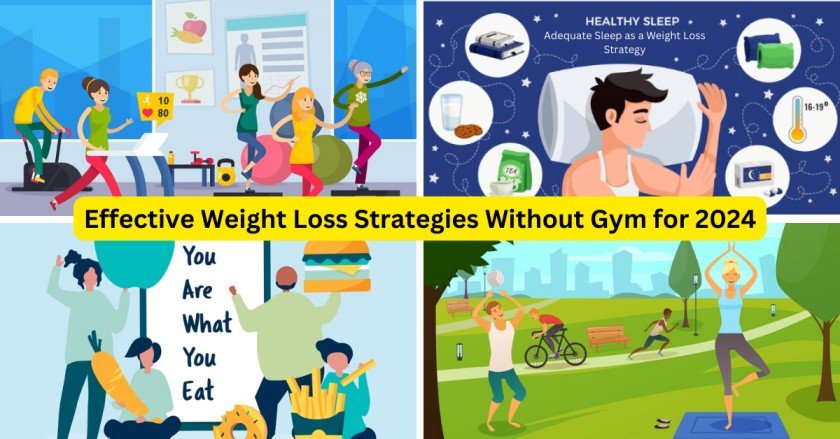Table of Contents
Introduction to Effective Weight Loss Strategies Without Gym
As we approach the year 2024, an increasing number of individuals are actively searching for effective weight loss strategies that do not rely on going to the gym. Recognizing the importance of maintaining a healthy weight for overall wellbeing, many people are seeking alternative methods to achieve this goal. Fortunately, one does not always require a gym membership to embark on a successful weight loss journey. In fact, there are numerous key strategies that can be considered for effective weight loss without having to step foot in a gym. These strategies encompass a range of approaches, including dietary adjustments, incorporating physical activity into everyday routines, and leveraging technology and online resources. By exploring these options and finding what works best for each individual, it is possible to achieve significant weight loss and improve overall health without the traditional gym setting. So, if you’re looking to shed those extra pounds and improve your wellbeing, consider these alternative weight loss strategies that can be seamlessly integrated into your lifestyle.
Embracing a Balanced Diet

A well-rounded and nourishing diet plays a pivotal role in an effective weight loss strategy. It involves incorporating a diverse range of nutrient-rich foods from all food groups, ensuring a balance of essential macronutrients and micronutrients. Emphasizing lean proteins, such as skinless poultry, fish, and legumes, provides important building blocks for muscle repair and growth. Including whole grains, such as quinoa and brown rice, supplies fiber and sustained energy release. Adding a variety of colorful fruits and vegetables provides an array of vitamins, minerals, and antioxidants to support overall health.
To optimize weight loss, it is crucial to limit the consumption of processed foods high in added sugars, unhealthy fats, and sodium. These foods often provide empty calories and can hinder progress towards weight loss goals. Practicing portion control is equally important, as it helps maintain a healthy calorie balance and prevents overeating. By paying attention to portion sizes and listening to hunger and fullness cues, individuals can better manage their energy intake.
Remember, a sustainable and long-term weight loss journey is supported by a well-planned and enjoyable eating pattern that nourishes both the body and the mind.
Regular Physical Activity Outside the Gym

Physical activity doesn’t have to be confined to the gym. In fact, there are numerous enjoyable ways to stay active and maintain a healthy lifestyle. You can take a brisk walk in the park, surrounded by the soothing sounds of nature and the refreshing scent of blooming flowers. Hop on your bike and explore scenic routes, feeling the wind in your hair as you discover hidden gems and breathtaking views along the way. Alternatively, you can join a local sports team for some friendly competition, building connections and camaraderie while engaging in your favorite game.
By incorporating regular physical activity into your routine, you not only burn calories but also strengthen your cardiovascular system, boost your energy levels, and enhance overall well-being. The benefits extend beyond physical fitness, as staying active improves mental clarity, reduces stress, and promotes a sense of accomplishment. So, why not step out of the gym and uncover the boundless possibilities of staying active in your everyday life? Embrace the joy of movement and embrace a healthier, more vibrant lifestyle.
Adequate Sleep as a Weight Loss Strategy

Extensive research conducted over the years has consistently demonstrated the detrimental impact of inadequate sleep on weight loss endeavors. It is not just a matter of feeling tired or groggy the next day; the significance of a restful night’s sleep goes far beyond that. In fact, it plays a crucial role in regulating the hormones responsible for controlling appetite.
When we don’t get enough sleep, our body produces more ghrelin, which is known as the hunger hormone. This increase in ghrelin levels can lead to heightened cravings and a greater likelihood of overeating. On the other hand, insufficient sleep also causes a decrease in leptin, the hormone responsible for signaling satiety. As a result, we may feel less satisfied after meals, leading to a higher calorie intake throughout the day.
By ensuring sufficient sleep, individuals can effectively support their weight management efforts and optimize their overall well-being. A good night’s sleep not only helps regulate appetite hormones, but it also promotes better decision-making when it comes to food choices. It provides the energy and mental clarity needed to make mindful choices and resist temptations, ultimately contributing to a healthier lifestyle.
So, the next time you’re tempted to stay up late or sacrifice sleep for other activities, remember the vital role that a restful night’s sleep plays in your weight management journey. Prioritizing sleep is not just about feeling refreshed and energized; it’s about giving your body the best chance to maintain a healthy weight and achieve overall wellness.
Mindful Eating for Effective Weight Loss
Mindful eating is a transformative practice that goes beyond simply nourishing our bodies. It invites us to embrace a profound sense of connection with our food and the act of eating itself. By being fully present and engaged during meals, we embark on a journey of sensory exploration, savoring every morsel that graces our taste buds.

Not only does mindful eating involve tuning in to our hunger and fullness cues, but it also encourages us to appreciate the intricate dance of flavors, textures, and aromas that each dish offers. We become attuned to the vibrant crunch of fresh vegetables, the delicate sweetness of ripe fruit, and the comforting warmth of a perfectly spiced meal.
Through this intentional practice, we cultivate a deep sense of gratitude for the abundance and nourishment that food provides. We learn to slow down, savoring each bite with a heightened awareness of the nourishment it brings to our bodies and souls. By taking the time to truly enjoy our meals, we can prevent mindless overeating, foster a healthier relationship with food, and make each dining experience a moment of pleasure and satisfaction.
With each mindful bite, we embark on a journey of self-discovery and self-care, nourishing ourselves not only physically but also emotionally and spiritually. So let us embrace the practice of mindful eating and allow it to awaken our senses, transform our relationship with food, and enrich our lives in ways we never thought possible.
Staying Hydrated

Proper hydration is not only important for overall health, but it also plays a crucial role in weight loss. By regularly drinking ample water throughout the day, you can help control hunger cravings by keeping yourself feeling full for longer periods. This is because water takes up space in your stomach, reducing the urge to snack unnecessarily. Additionally, adequate hydration supports proper digestion, allowing your body to efficiently break down and absorb nutrients from food. When you are well-hydrated, your digestive system functions optimally, ensuring that you get the most out of the nutrients you consume.
Moreover, staying hydrated can boost your metabolism, leading to more efficient calorie burning and potentially aiding in weight loss efforts. When you are dehydrated, your metabolism slows down, making it harder to shed those extra pounds. However, by staying properly hydrated, you can keep your metabolism revved up, helping you burn calories more effectively.
So, make sure to prioritize hydration as a fundamental aspect of your weight loss journey for optimal results and overall well-being! Remember to drink water regularly, not just when you feel thirsty, to maintain proper hydration levels and support your weight loss goals.
Final Thoughts: Achieving Weight Loss without the Gym
Achieving weight loss without the gym is not only feasible but also highly effective when you implement the right strategies. By adopting a well-balanced diet that includes plenty of fruits, vegetables, lean proteins, and whole grains, you provide your body with the necessary nutrients to support your weight loss journey. Engaging in regular physical activity, such as brisk walking, jogging, or even dancing, helps to burn calories and boost your metabolism. Additionally, getting enough quality sleep is crucial as it promotes proper hormone regulation and overall well-being.
Practicing mindful eating is another important aspect of successful weight loss. By paying attention to your body’s hunger and fullness cues, you can avoid overeating and make healthier food choices. Remember to savor each bite and eat slowly, allowing yourself to fully enjoy the flavors and textures of your meals.

Staying hydrated throughout the day is also key. Drinking an adequate amount of water not only helps to flush out toxins but also keeps you feeling full and satisfied, reducing the likelihood of unnecessary snacking.
With these strategies in place, you can make significant progress towards your weight loss goals in 2024. Every step you take towards a healthier lifestyle matters, and consistency is the key to long-term success. Keep up the great work!
Frequently Asked Questions about Weight Loss
1. What is the best way to lose weight without going to the gym?
The best way to lose weight without going to the gym involves a combination of a balanced diet, regular physical activity, and adequate sleep. Increase your intake of fruits, vegetables, whole grains, and lean proteins while limiting processed foods and sugars. Incorporate small bursts of physical activity into your daily routine, such as taking the stairs instead of the elevator or walking during your lunch break. Also, ensure you’re getting enough sleep at night, as lack of sleep can disrupt metabolism and appetite regulation.
2. How to lose 20kg in 2 months without exercise?
Losing such a significant amount of weight in a short period without exercise is not recommended as it can lead to serious health problems. A healthy weight loss pace is typically 0.5 – 1 kg per week, which is sustainable and less likely to lead to weight regain. For substantial weight loss, it’s not just about reducing food intake but also making healthy food choices. Include plenty of fruits, vegetables, lean proteins, and whole grains in your diet, and avoid processed foods and sugars.
3. How to burn fat quickly?
Burning fat quickly involves a combination of a calorie-controlled diet and regular physical activity. Consuming fewer calories than your body needs forces your body to use stored fat for energy. Engage in regular physical activities that you enjoy, as this increases your metabolic rate and helps burn more calories. Include strength training exercises in your routine, as they help build muscle, which burns more calories than fat, even at rest.
4. How to lose 10 kg in a month diet plan?
Aiming to lose 10 kg in a month could lead to unhealthy weight loss unless done under medical supervision. However, a healthy, balanced diet can contribute to significant weight loss over time. Your diet should include a variety of fruits, vegetables, lean proteins, and whole grains that fill you up and provide the necessary nutrients, without adding too many calories. Avoid sugary drinks and high-calorie snacks, and instead opt for water, herbal teas, and healthy snacks like nuts or raw veggies.
5. How to lose weight without dieting?
Losing weight without dieting doesn’t mean you can eat whatever you want. It’s more about making healthy food choices and lifestyle changes rather than depriving yourself of certain foods. Limit your intake of processed foods, sugars, and trans fats. Incorporate more fruits, vegetables, lean proteins, and whole grains into your meals. Also, practice mindful eating, where you savor each bite and listen to your body’s hunger and fullness cues. This can help prevent overeating and contribute to weight loss.
Read Related Article on Health:-
Can intermittent fasting help with weight loss after 50?
As women over 50 consider popular diets like intermittent fasting (IF) for weight loss, examining the limited research available and crafting sustainable lifestyle changes is key. While evidence confirms IF can deliver results for some when combined with training, quality long-term studies focused on menopausal women are lacking. However, potential longevity benefits around heart health, brain function, cellular repair, and cancer prevention incentivize trying IF. Cautious beginners should start with 12-hour fasts before progressing to advanced 16:8 scheduling. Patience allows the body to adjust over 6-8 weeks. But nutrition should not be neglected – meeting protein, vitamin, and mineral needs while limiting inflammation enables success. Talk to your doctor, especially if managing health conditions, and track progress. While current science shows promise, confirm IF aligns as part of a holistic plan benefiting your unique fitness and aging goals…..
For Read More Article
 Skip to content
Skip to content












